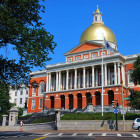Business
Chamber Events Include Visit From Transportation Secretary, Small Business Day on Beacon Hill & More
|
The Charles River Regional Chamber has plenty going on this spring, including a talk with the Transportation Secretary, a young professionals group, Small Business Day at the State House and an LGBTQIA+ Happy Hour. See the information provided by the Chamber below:
Addressing our transportation challenges: A conversation with MassDOT Secretary Monica Tibbits-Nutt
Tues. May 14, 9:30 to 11 a.m.Hampton Inn & Suites, 25 Bond Street, Watertown$10 for members, $15 for nonmembers
It’s not possible to meet our region’s housing, climate, and workforce challenges without a safe, reliable, and accessible transportation system that meets the needs of all users whether they walk, bike, take public transit, or drive. Join us for a conversation with Massachusetts Secretary of Transportation Monica Tibbits-Nutt for an overview of the Healey-Driscoll Administration’s plans for improving the state’s transportation system and the role we all must play in supporting this effort. 9:30 a.m.: Registration and Networking
10 a.m.: A Conversation with Secretary Tibbits-Nutt
Tickets are nonrefundable but may be transferred to another guest.
RSVP HERE
LGBTQIA+ Happy Hour at Flora’s Wine Bar
Wed.



